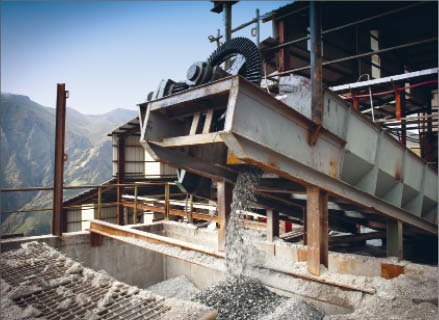Three years ago when Pierre Monet went out on the road to talk to the investment community about tungsten, he would spend more than half of his time explaining what the metal was all about.
Today the president and chief executive of tungsten producer Malaga (MLG-T) says the people he meets “understand the story” and “the supply and demand fundamentals” of the metal, the second-hardest element in the world after diamonds, and claims there is “a real concern about where the supply is coming from” and that end-users are “looking to get long-term supply agreements” in place.
Demand for the metal has pushed up the average reference selling price of ammonium paratungstate (APT) — the main tungsten raw material traded in the market — to US$454 per metric tonne unit (MTU) in 2011’s third quarter, up from US$240 MTU in the third quarter of 2010.
And that, says Monet, puts Malaga — one of the few publicly traded tungsten producers outside of China — in an enviable position.
Because Malaga’s Pasto Bueno mine in northern Peru uses a gravimetric ore concentration process and has access to hydroelectric power on its property, it is also among the world’s lowest-cost producers, at US$163 per MTU.
On Feb. 27 the junior unveiled an updated resource estimate showing a 16% increase in proven and probable reserves and a 140% increase in measured and indicated resources. Proven and probable reserves now stand at 195,880 tonnes with an average 0.66% tungsten grade, while measured and indicated resources inclusive of reserves stand at 814,096 tonnes grading an average 0.78% tungsten. Inferred resources add 3.72 million tonnes grading 0.83% tungsten and the company estimates its tailings pond contains inferred resources of 450,000 tonnes grading 0.14% tungsten. The tailings pond would have up to a six-year lifespan producing 500 tonnes per day.
The increase in reserves and resources is the result of underground development and exploration over the last two years. The company drilled 1,900 metres during 2010 and 2011, which yielded measured and indicated resources of 233,352 tonnes grading 0.75% tungsten and 2.16 million tonnes of inferred resources grading 0.86% tungsten.
The company notes that it has been increasing reserves and resources every year since it restarted the mine in 2007, and at current production rates it could hold seven years’ worth of resources and two years of reserves. “Our intention is to convert more indicated into reserves every year, and the target would have anywhere from 18 months to 36 months of reserves,” Monet says. “We’re putting more money to increase the pace of exploration in 2012 and 2013, and that should result in more reserves and resources over time. We think the mine will be there for a very, very long time, and has great potential that has not been explored yet.”
Monet points out the updated resource estimate doesn’t include exploration work Malaga has undertaken on the mantos on the southern part of the Pasto Bueno property, which the company started drilling in the second half of last year and early 2012.
“We have high expectations of that zone,” Monet says of the mantos. “Our geologists believe there is a skarn under the mantos and should it turn out to be a skarn, we would be able to add a few million tonnes of tungsten in that section and it would enable us to build a second plant and process that tungsten and recover other metals that it would have with it.”
Mine production is only 350 tonnes per day with a plant capacity of 500 tonnes per day. Monet forecasts that Malaga should reach the 500-tonne-per-day level in 2013. The final product is a premium concentrate containing a minimum 0.70% tungsten.
Malaga plans to spend $4 million on development this year. In January, the company hired a new general manager, Fernando Pajuelo, to keep Pasto Bueno running on track. The Peruvian mining engineer has experience in managing underground and open-pit mining operations in South America, and has worked for Glencore International and Pan American Silver (PAA-T).
At presstime Malaga traded at 16.5¢ per share within a 52-week range of 9.5¢ to 33.5¢ per share. The Montreal-based junior has 184 million shares outstanding.


The price is $454 per MTU not per ton.
If it was per ton, it would be $45400